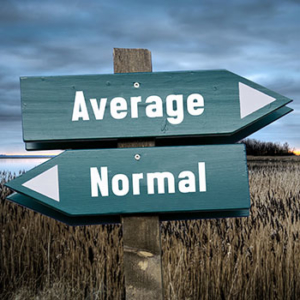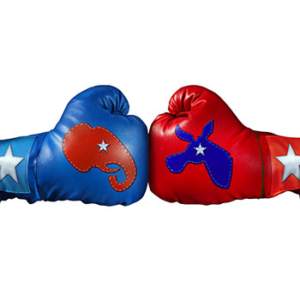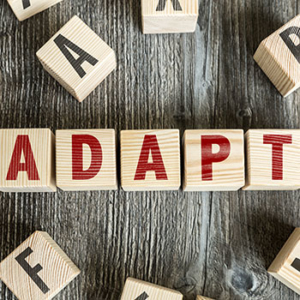 I once heard someone say that with your head in the freezer and your feet in the oven, your average body temperature is normal. As this illustrates, the difference between average and normal can be significant. “Average” is not always normal and the two are not always interchangeable.
I once heard someone say that with your head in the freezer and your feet in the oven, your average body temperature is normal. As this illustrates, the difference between average and normal can be significant. “Average” is not always normal and the two are not always interchangeable.
The normal body temperature is generally accepted as 98.6 degrees with range of 97 to 99. If you run a fever of say 102 degrees and others around you also have temperatures ranging from 100 to 104, you would be considered “average” among that group but still not have a normal temperature.
Defining average vs. normal
Sometimes we look at the world around us and create an image of what is normal based on the average. For example, it seems like the average person today is compelled to attack others physically, verbally, or both because of different political views. While some would pass this off as normal behavior because so many are doing it, it is NOT always “normal.”
I have noticed people on social media posting about how much they hate a political candidate. It seems like (and it may very well be) an obsession. As you scroll past these posts you can see many more of the same postings by different people. If we took a collection of these posts, one might assume that the average person harbors a great deal of hate. On average, this might be true; however, it doesn’t make it normal.
 “Normalcy” in politics
“Normalcy” in politics
By the time this blog is published, the 2020 Presidential Election will be over and hopefully a victor has been determined. The likelihood of unrest over this election is probably high. Political elections seem to have become increasingly filled with people’s emotions—like being triggered and finger pointing—and decreasing in terms of substantive debate.
I have often said that anyone who relies on a political candidate or party for their own happiness will most surely be disappointed. If we were to interview a random group of people, we would find that, on average, people have a belief that government will impact their life either negatively or positively. While decisions made by a president or congress can have an effect on our lives, we would be foolish to think that our own actions and beliefs don’t account for a vast majority of personal outcomes. In other words, the average belief is not generally what is normal in our everyday lives.
Out with the average, in with the normal
Corporations have had to adjust to political change for what seems like forever. The best-run companies are agile enough to adapt to government rules and regulations. While there are extreme views among some politicians that would adversely affect commerce, in general, a majority of elected officials have sufficient basic knowledge of capitalism to know that you can’t regulate to the point of forcing businesses to shut down. Less business equals less jobs and anyone who runs for office knows this (although some have learned the hard way).
 There are radical views that may skew the average, but at the end of the day, “normal” will likely prevail among government and business. Finding investment opportunities is challenging even outside of a presidential election year. In a strange way, however, the pandemic has made the process of finding companies who are good adapters easier. Look at companies who made changes quickly and effectively in a reaction to restrictions due to COVID-19. Those companies are good candidates for adjusting to changes in government. Essentially, the “new normal” has separated the wheat from the chaff. Some businesses were average reactors while others reacted normally and did so quickly. The latter group has made the new normal much more normal.
There are radical views that may skew the average, but at the end of the day, “normal” will likely prevail among government and business. Finding investment opportunities is challenging even outside of a presidential election year. In a strange way, however, the pandemic has made the process of finding companies who are good adapters easier. Look at companies who made changes quickly and effectively in a reaction to restrictions due to COVID-19. Those companies are good candidates for adjusting to changes in government. Essentially, the “new normal” has separated the wheat from the chaff. Some businesses were average reactors while others reacted normally and did so quickly. The latter group has made the new normal much more normal.
All this to say, as we move past the 2020 election and work toward a further recovery from the current pandemic, acting normal might be far more advantageous than acting average.
November 2020
Content in this material is for general information only and not intended to provide specific advice or recommendations for any individual. No strategy assures success or protects against loss. Investing involves risk including loss of principal.
